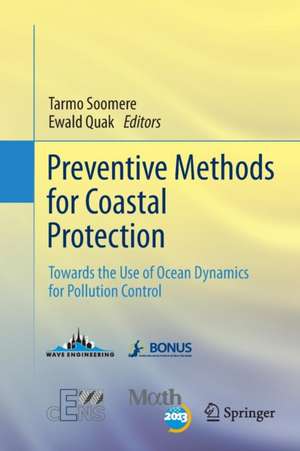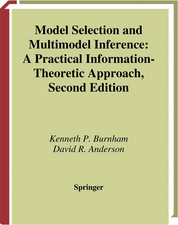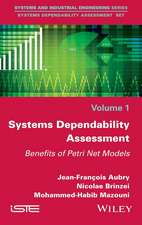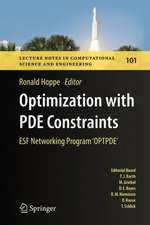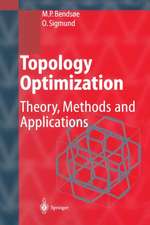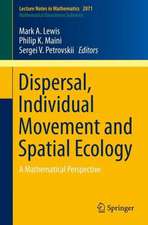Preventive Methods for Coastal Protection: Towards the Use of Ocean Dynamics for Pollution Control
Editat de Tarmo Soomere, Ewald Quaken Limba Engleză Paperback – 23 aug 2016
| Toate formatele și edițiile | Preț | Express |
|---|---|---|
| Paperback (1) | 648.42 lei 6-8 săpt. | |
| Springer International Publishing – 23 aug 2016 | 648.42 lei 6-8 săpt. | |
| Hardback (1) | 653.14 lei 6-8 săpt. | |
| Springer International Publishing – 10 iul 2013 | 653.14 lei 6-8 săpt. |
Preț: 648.42 lei
Preț vechi: 762.85 lei
-15% Nou
Puncte Express: 973
Preț estimativ în valută:
124.07€ • 129.54$ • 102.69£
124.07€ • 129.54$ • 102.69£
Carte tipărită la comandă
Livrare economică 05-19 aprilie
Preluare comenzi: 021 569.72.76
Specificații
ISBN-13: 9783319343334
ISBN-10: 3319343335
Pagini: 460
Ilustrații: XVIII, 442 p. 171 illus., 138 illus. in color.
Dimensiuni: 155 x 235 x 24 mm
Greutate: 0.64 kg
Ediția:Softcover reprint of the original 1st ed. 2013
Editura: Springer International Publishing
Colecția Springer
Locul publicării:Cham, Switzerland
ISBN-10: 3319343335
Pagini: 460
Ilustrații: XVIII, 442 p. 171 illus., 138 illus. in color.
Dimensiuni: 155 x 235 x 24 mm
Greutate: 0.64 kg
Ediția:Softcover reprint of the original 1st ed. 2013
Editura: Springer International Publishing
Colecția Springer
Locul publicării:Cham, Switzerland
Cuprins
Foreword.- Preface.- The Baltic Way Project.- 1. Towards Mitigation of Environmental Risks: T.Soomere.- Part I Modelling the Underlying Dynamics: 2. Topography, Hydrography, Circulation and Modelling of the Baltic Sea: K. Myrberg and A. Lehmann.- 3. Introduction to Computational Fluid Dynamics and Ocean Modeling: T. Torsvik.- 4. Studying the Baltic Sea Circulation with Eulerian Tracers: M. Meier and A. Höglund.- 5. European Semi-Enclosed Seas: Basic Physical Processes and their Numerical Modeling: E. Stanev and Xi Lu.- 6. The Gulf of Finland, its Hydrography and Circulation Dynamics: K. Myrberg and T.Soomere .- Part II Lagrangian Dynamics and Inverse Problems: 7. TRACMASS - A Lagrangian Trajectory Model: K. Döös, J. Kjellson and B. Jönsson.- 8. Evaluation and Tuning of Model Trajectories and Spreading Rates in the Baltic Sea Using Surface-Drifter Observations: J. Kjellson, K. Döös and T.Soomere.- 9. Statistics of Lagrangian Transport Reveals Hidden Features of Velocity Fields: T. Soomere.- 10. Applications of the Inverse Problem of Pollution Propagation: T. Soomere.- 11. Applications of an Oil Drift and Fate Model for Fairway Design: J.Murawski and J.W.Nielsen.- Concluding Remarks.- Index.
Textul de pe ultima copertă
The aim of the book is to present for non-specialist researchers as well as for experts a comprehensive overview of the background, key ideas, basic methods, implementation details and a selection of solutions offered by a novel technology for the optimisation of the location of dangerous offshore activities in terms of environmental criteria, as developed in the course of the BalticWay project. The book consists of two parts. The first part introduces the basic principles of ocean modeling and depicts the long way from the generic principles to the practical modeling of oil spills and of the propagation of other adverse impacts. The second part focuses on the techniques for solving the inverse problem of the quantification of offshore areas with respect to their potential to serve as a source of environmental danger to vulnerable regions (such as spawning, nursing or also tourist areas). The chapters are written in a tutorial style; they are mostly self-contained and understandable for non-specialist researchers and students. They are carefully peer-reviewed by international experts. The goal was to produce a book that highlights all key steps, methods, models and data sets it is necessary to combine in order to produce a practically usable technology and/or decision support system for a particular sea region. Thus the book is useful not only as a description and a manual of this particular technology but also as a roadmap highlighting the complicated technical issues of ocean modeling for practical purposes. It describes the approaches taken by the authors in an understandable way and thus is useful for educational purposes, such as a course in industrially and environmentally relevant applications of ocean modeling.
Caracteristici
Detailed description of a novel low-cost technology for preventive mitigation of environmental impact of offshore activities Innovative quantification of the offshore through the analysis of properties of current-driven transport in several semi-enclosed seas Applications of sophisticated topics and complicated methods in fluid dynamics and modeling presented in a tutorial style? Includes supplementary material: sn.pub/extras
